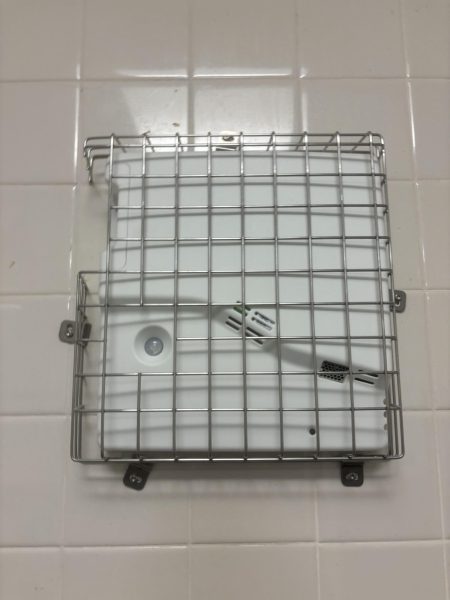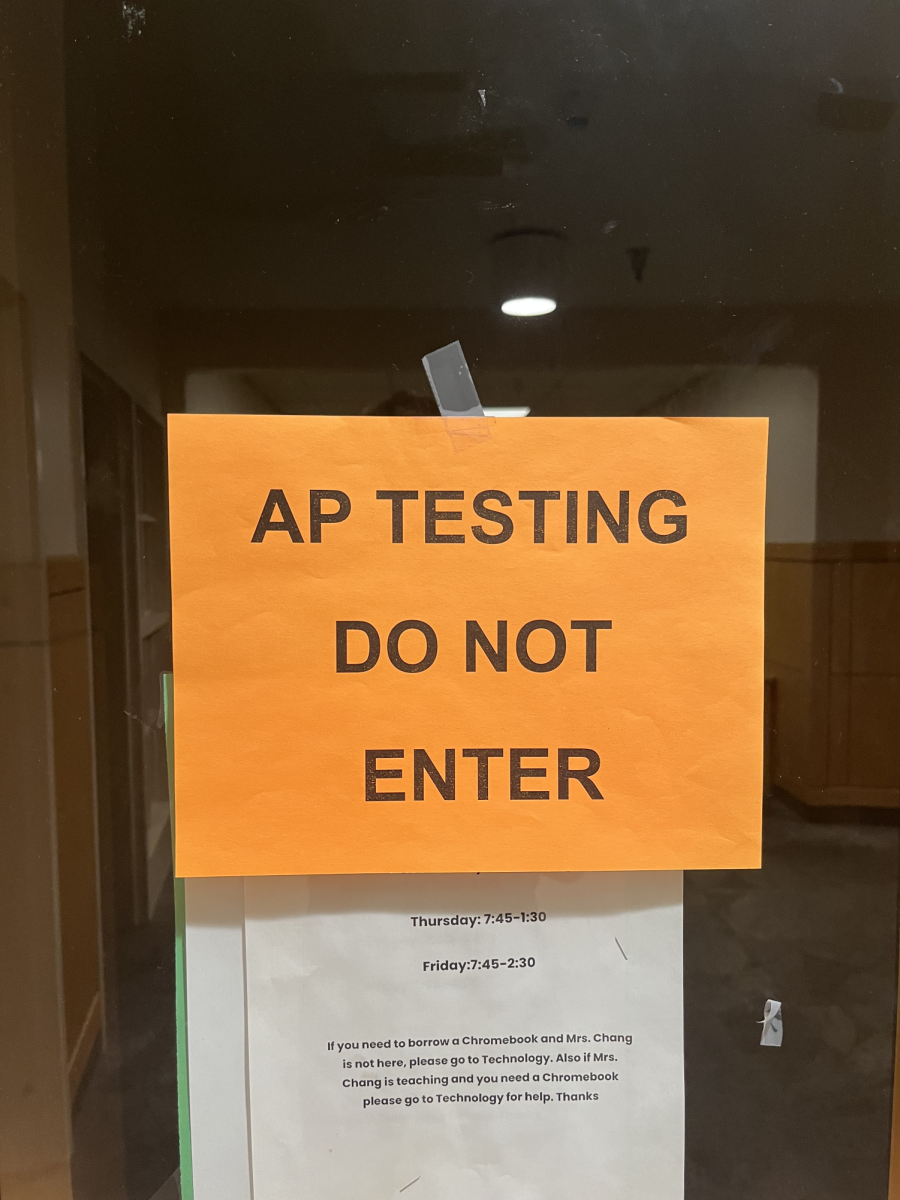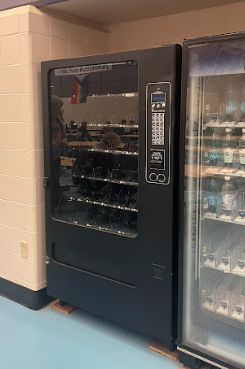Vaping is the favorite pastime of some students at Ipswich High School. However, some students found this difficult when returning to school this past fall. This is due to the new vape detector in the bathroom near the cafeteria.
Vape detectors, or particulate sensors, use laser scattering technology to detect vape aerosols in the air. This includes refined vegetable glycerin, propylene glycol, and nicotine particles. These are just some of the chemicals found inside of a vape. Other such chemicals include acrolein, acetaldehyde, formaldehyde, and diethylene glycol. These chemicals have many uses besides being in a vape, including, but not limited to, killing weeds, preserving dead bodies, and creating building materials.
Luckily for the vapers, though, the vape detector is only installed in one bathroom near the middle school gym. We interviewed an anonymous vape user at Ipswich High School, and they told us, “The vape detectors don’t stop people from vaping; they just make them vape in other bathrooms besides the one by the gym.”
When the new vape detectors detect nicotine in the air in the bathroom, they notify the administration in the front office. After informing the front office, they can check the security cameras outside the bathroom to see who was in the toilet  when the detector went off. After checking the cameras, they call down whoever is in the bathroom, and then they get searched. In many cases, some innocent students get searched simply because they were in the bathroom at the same time as someone who was vaping.
when the detector went off. After checking the cameras, they call down whoever is in the bathroom, and then they get searched. In many cases, some innocent students get searched simply because they were in the bathroom at the same time as someone who was vaping.
The new vape detectors don’t have the effect that the administration hoped they would on the vaping population in Ipswich. In another interview conducted with another anonymous vaper, they told us that they hit their vape upwards of 200 times per day, about a quarter of those times being in school. The same student reported that even though they had been caught vaping in school, it didn’t stop them from continuing as soon as they were done with their punishment.
Students who are caught vaping in school could face serious repercussions; the most severe of them being suspension from school and being forced to attend a program called Pass, which is meant to help them quit vaping.
Why don’t they just not do it? If it’s so harmful, you may be asking yourself that question. A study conducted by the Food and Drug Administration states that 37% of high schoolers have at least tried a vape by the time they are seniors. Some of the reasons that students begin vaping in the first place are because of factors such as peer pressure, stress, or just the experience of vaping.
Quitting is not so easy for these students either. The reason it is so hard to stop vaping once you start is that when you vape daily, the nicotine level in your bloodstream drops when not vaping. This causes your dopamine levels to drop, too, and makes you feel unpleasant feelings, restlessness, anxiety, trouble concentrating or sleeping, and weight gain.







